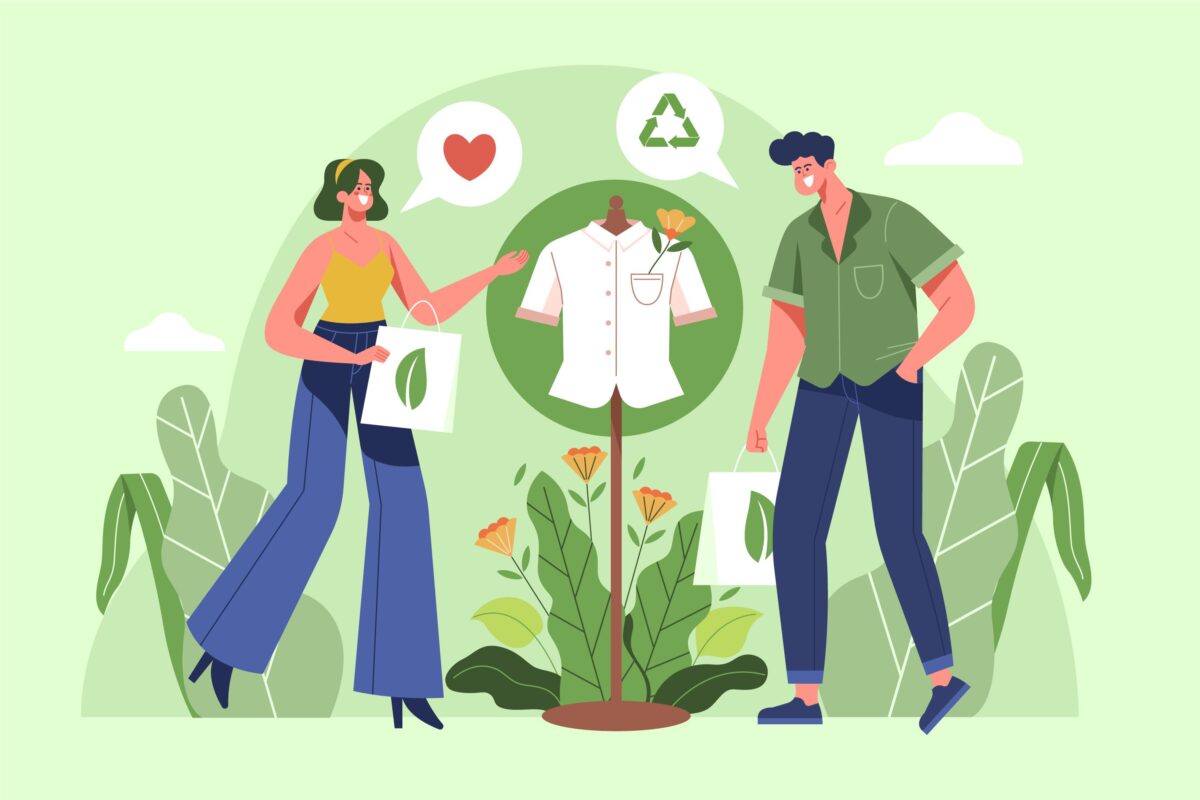No products in the cart.
Uncategorized
Can fashion be both sustainable and comfortable?

It is no doubt that sustainable fashion is taking the world by storm, and rightfully so. Non-ethical fashion has not only been researched into as extremely harmful for nature, but it also seems to come at the cost of humanity, in terms of exploitive labor and human rights violation. Surveys conducted show that in 2018, around 17 million tons of textile waste ended up in landfills, which takes around 200+ years to decompose. Arguments around the world also center around fast fashion brands as the main culprits for such landfills, even as they come out with sections in their brands which claim to be eco-friendly.
Are such brands really ‘conscious’? Are the efforts truly convincing? And in the process of rebranding their relationship with mother earth, do they destroy ones with humanity?
Is it worth a benefit-of-doubt?
The clear answer to the above is a new, fresh route that does not require any rebranding but is intrinsically rooted to nature and everything sustainable. A route which is the new black and a ‘trend’ we hope never dies. Thrift stores and small fashion designers with sustainable modes of production are the talk of the town and this is not lost to India. Tons of young adults have taken to the Internet fashion that is pre-loved, essentially called thrifting and have also emerged as budding fashion designers, evolving with each new ‘post’ and design and much more transparent about their work than any fast fashion can imagine.
Fashion designers in Bangalore too, have their own market for such a space and are encouraged and successful due to their loyal and eco-‘conscious’ customers.
Maybe it is the social label that comes along buying sustainable fashion or maybe it is the pure joy In knowing you have played a part in saving the earth, but whatever it is, it is definitely an industry with limitless possibilities and talent.
With most sustainable fashion and pre-loved clothing comes the question of quality and reliability. With pre-loved fashion, one cannot ever ensure if it’s made to fit since these are of-course but clothing that was most probably bought from a fast fashion brand, who lack awareness when it comes to sheer diversity of sizes and shapes. Styles are the same, lacking taste and individuality. One does not simply wear clothes as a necessity and comfort, while that is a pivotal point after all, but it also a statement on its own and a way one expresses themselves. It is how we choose to be perceived. How do you stay sustainable, eco-friendly, comfortable and fashionable, all at the same time?
Businesses like ‘Sxeriff’ in Bangalore can be mentioned as talented fashion designer brands in Bangalore, trying to make their own unique mark in such spaces and ticking off all your boxes, all while remaining extremely fashionable and how can I forget? Niche.
‘Sxeriff’ is a fashion designer brand in Bangalore by Asad Rehman Sheriff, who with their humble beginnings, is inspired by fashion and sustainability in a way that it has continued to support local/small vendors as it has grown and has transpired to deliver great quality clothing and as the pandemic asks, masks as well. There are no ‘but’s’ to such businesses that are driven purely by their drive which do not ask of consumers to compromise on anything, not even fittings! You can wave goodbye to drives to your tailor for alterations.
Sustainable fashion and designers in Bangalore (such as the one mentioned above) seem to get more than one thing right.
Strong knit relationships with customers help in engagement on another level, which most, if not all fast fashion brands lack. Being more connected to the consumer, also means awareness of trends and what a local consumer is looking to buy, given the present time.
Trends are not overdone and are still in a way unique to these small businesses, who try incorporating their own style into such trends. It only goes to show how much effort is put into tailoring a single piece even.
It is obviously more time consuming to look out for brands like ‘Sxeriff’ around you and your city, some brands might even come at a more expensive rate than what you’re paying for at a fast fashion store and might require more care with how they’re handled but knowing that such pieces are made with utmost care and love while truly respecting nature, fashion and what it stands for (which at present time, also means sustainability). There are no rules here and no barriers of size or shape and truly embody your identity, as it is.
These businesses most importantly need your support to sustain themselves. To deliver clothes that go beyond just fashion and built to thrive on the ways of the earth.

